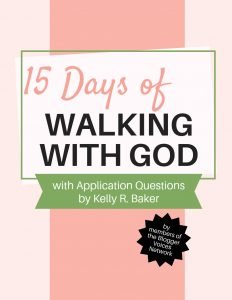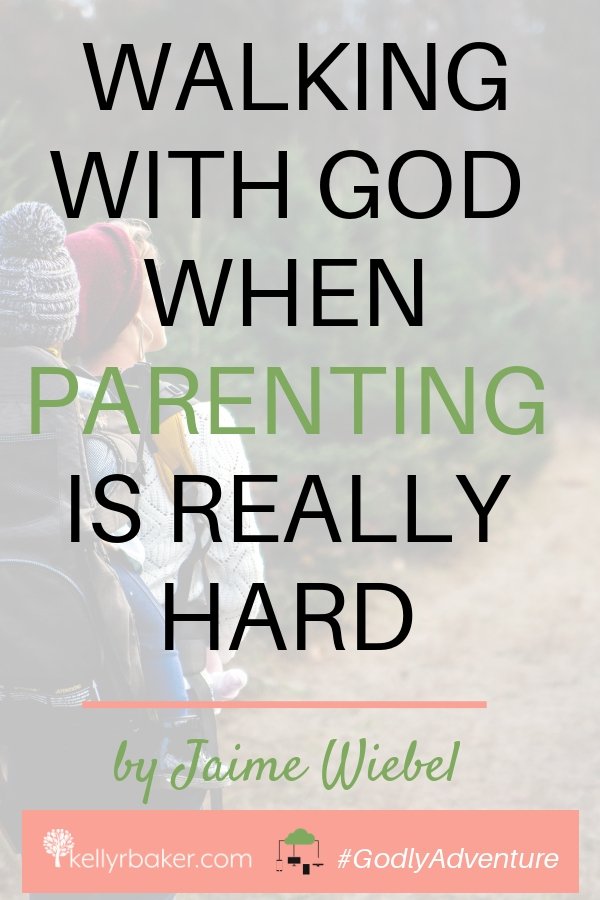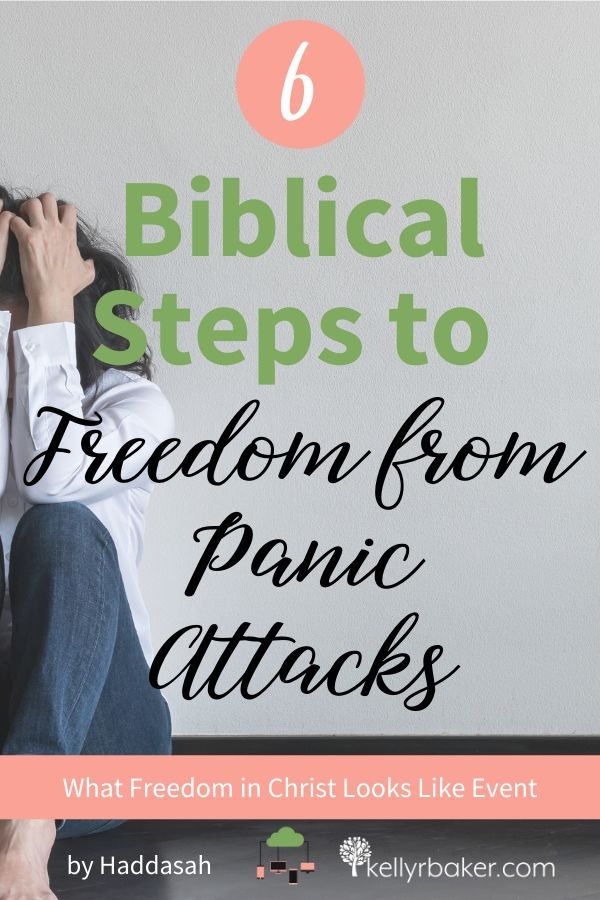Walking with God Through Heartache
Welcome to Day 6 of our #GodlyAdventure. Have you ever experienced heartache? Especially enduring pain—that you caused? Anita Ojeda transparently shares her story of walking with God through heartache.

At the time, we thought we said the right things. We thought we spoke in love and Christian admonition. Unfortunately, in our urge to correct and to help Sarah, our daughter, make good choices, we spoke without first letting the Holy Spirit filter our words.
“What you’re doing is prostitution,” we told her.
Sarah heard, “You are a prostitute.”
“You’re selling yourself for things instead of money.”
She heard, “You’re a hooker.”
“We raised you to make good choices. What’s wrong with you?”
She heard, “You’re worthless.”
To make matters worse, we wounded her during her darkest hour—during her first week in a psychiatric hospital. We had man’s approval for sharing our concerns, but we failed to consult God. Her psychiatrist advised that we bring these difficult topics up while she was in supervised care—in case she felt suicidal after our conversations.
Thousands of miles stretched between us. Disembodied voices over the phone heaping loving words of well-intentioned condemnation. But those voices didn’t sound the way we thought they did. Our daughter had every reason to resent us, hate us, and hold a grudge against us.
Years later, she shared that her conversations with us caused her to run to her room and scream into her pillow. Once she calmed down, she would write hate letters that she never sent.
At the time, we thought we said the right things. We thought we spoke in love and Christian admonition. @blestbutstrest #GodlyAdventure #BloggerVoicesNetworkAfter the Psych Ward
When the hospital released her, I felt so frustrated. They had shared her diagnosis with us—bipolar disorder—but nothing else. No after-care sheet like the hospital gave us after she broke her arm. Not even phone numbers or websites that the patient’s family might find helpful. Nothing.
I researched on my own. As I read, I came to the horrible realization that all the things our daughter had done were not under her control. For the first time, I really understood that mental illness is an illness—not a cop-out, not an excuse, but an honest-to-goodness sickness in someone’s brain.
My actions in condemning people in my mind for their perceived weaknesses as sufferers of mental illness haunted me. My unkind words to our own daughter haunted me, too.
The road to recovery took time. It took time for the psychiatrist and our daughter to decide on the best dose of the best medication. During that time, Sarah suffered from hypomania. During hypomania, the brain still misfires causing an electrical storm that messes with a person’s reasoning.
Our 21-year-old daughter often acted like a preteen. By this point, we understood the why, but the reality was hard to cope with. I prayed constantly for the Holy Spirit to guide my words. I didn’t want to say anything else hurtful.
The Slow Road to Recovery
I found a book to help me through this stage of Sarah’s recovery—The Bipolar Disorder Survival Guide. The book, written for both family members and those who suffer, helped me see that Sarah needed to control the situation. I needed to back off and let her make important decisions.
Instead of giving directives, I learned to ask questions. Her answers didn’t always make sense to me, but they allowed us to have open conversations. Somewhere during that time, I think I apologized for our behavior. For not understanding.
But maybe not. Maybe that came later, as we wrote a series about our experiences for my blog. During that time, we each shared our stories—with each other and with the world. We came to know each other better and to understand each other’s perspective. She had returned to college a thousand miles away, so my apology may have been via text or email.
I do know that I have never felt condemned for MY actions by anything she has said, done, or written. Her forgiving heart humbles me.
What I Learned About Walking with God Through Heartache
First of all, I learned that all relationships will produce disappointment and heartache—even those with our children. We each have a choice, though. We can let that heartache help us learn and grow, or we can allow it to make us bitter.
Knowledge is power. When my husband experienced a catastrophic cancer diagnosis, I devoured all the information I could find in order to come alongside him and help him. Once our daughter had a diagnosis, I did the same thing. I had to put aside preconceived ideas about mental illness and the relationship I imagined I would have with my adult daughter. I believe our relationship is stronger and better because of what we went through.
Mental illness, whether it comes in the form of anxiety, depression, bipolar disorder, schizophrenia, Alzheimer’s, or obsessive-compulsive disorder, will put a strain on relationships—just like any other illness. Cancer put a strain on the relationship between my husband and me. As he recovered, I had to leave caregiver mode behind and once again enter into an equal partnership. Mental illness is no different. Relationships will go through periods of discovery, crisis, recovery, and rebuilding.
No matter what the context, learning to ask questions instead of giving directives will help relationships move forward. Instead of saying, “Why did you do that?” try asking, “How did you feel when you did that?” Don’t say, “You need to stop making rash decisions!” Instead, ask, “How did that work out for you?” Invite dialogue, don’t rain opinions. Say, “Tell me more,” instead of, “That was a dumb thing to do!”
I had to put aside preconceived ideas about mental illness and the relationship I imagined I would have with my adult daughter. @blestbutstrest #GodlyAdventure #BloggerVoicesNetworkIn Addition, Own it and Grow
Don’t shy away from acknowledging your part in the problem and asking for forgiveness. “Sarah, I should have prayed before I spoke. I deeply regret the heartache I caused you. Will you forgive me?” It has taken me years to learn to apologize without sounding like I want to make excuses for myself. Simple, specific, and sincere works best.
As a woman who rarely feels shy about sharing my opinion, I’ve learned the importance of praying before speaking. The verse I pray over myself comes from Psalm 19:14(ESV).
Let the words of my mouth and the meditation of my heart be acceptable in your sight, O Lord, my rock and my redeemer.
I wish I could have sheltered Sarah from all she experienced, but that experience made each of us stronger and better-equipped to face future storms in life. It also allowed us to reach out and bless other people who walk through similar storms.
What’s your story of walking with God through heartache?
 Anita Ojeda has a passion for educating people about the early signs of mental illness in adolescents. She blogs at www.anitaojeda.com in between preparing lessons, teaching classes, and toddler wrangling her grandson. When Anita’s not lurking outdoors looking for and photographing rare birds in odd places, you can find her hanging out with her husband, camping with her kids, or mountain biking with her students.
Anita Ojeda has a passion for educating people about the early signs of mental illness in adolescents. She blogs at www.anitaojeda.com in between preparing lessons, teaching classes, and toddler wrangling her grandson. When Anita’s not lurking outdoors looking for and photographing rare birds in odd places, you can find her hanging out with her husband, camping with her kids, or mountain biking with her students.
What a blessing! The Walking with God online event and giveaways are great! #BloggerVoicesNetwork #GodlyAdventure
Did you enter the giveaway yet?
- Week 2 – Walking with God Through My Mistakes of Hurting Others Giveaway: one winner of Battle Ready: Train Your Mind to Conquer Challenges, Defeat Doubt, and Live Victoriously book by Kelly Balarie AND Sheila Walsh’s new book It’s Okay Not to be Okay; one winner of Part One of the Find Your Calling Study & 50% off the entire study and one copy of 31 Specific Prayers for Your Marriage eBook; one winner of a Watercolor Flowers Christian Journal and a copy of Worthy: Believe Who God Says You Are eBook.
- Week 2 – Special Blogger Giveaway: one winner receives 1 month free to Easy Blogging Tools.
Get the Event Devotional eBook!
Want to encourage others in their walk with God? Use the icons below to share this post!
*shared at some linkups


 Anita Ojeda has a passion for educating people about the early signs of mental illness in adolescents. She blogs at
Anita Ojeda has a passion for educating people about the early signs of mental illness in adolescents. She blogs at 






Anita, this is a great article. Mental illness comes in many forms, and we put so many labels on them like PTSD, or just plain co-dependency. These have been my battle. I think every individual deals with struggles like this – as long as we are in this thing called humanity. I jotted down you do and don’t questions. They are very good. Thank you. May God bless your teaching in a greater and greater way.
Thank you, Ann! It’s funny (ok, downright amazing and awesome) how God uses our personal trials to grow us in ways we can help others. Every since this experience, we’ve changed the way we deal with our traumatized students. We ask more questions and assume less (if little). God is good.
Thank you for sharing your heart and providing a glimpse of healing and hope.
And thank you for reading, Elaine!
Anita, once again, I’m learning from you things I need on my own journey parenting a young adult with mental health issues. This journey is harder than when my husband had a major health event. Thank you for giving me hope of a stronger, better relationship in the future.
Oh, Barbara, I agree! Helping our daughter through mental illness was much more difficult than catastrophic cancer! Praying that God continues to guide you and the Holy Spirit comforts and teaches you!
Anita, I appreciate your honest sharing here and on your blog about mental illness. Such an important topic that needs to be talked about more often in our current culture. Blessings to you!
Thank you for your kind words, Sarah! My Sarah and I decided that we could either keep her ordeal a secret or share it to help others. She awes me with her bravery and willingness to talk!
Thank You for sharing so vulnerably friend! I need to find that Bipolar Survival Guide. I wonder if it would teach me more than what I have learned over the years. And oh so much THIS: “For the first time, I really understood that mental illness is an illness—not a cop-out, not an excuse, but an honest-to-goodness sickness in someone’s brain.” YES! YES! Yes! Love you friend!
Thank you, Tara! You just might find something new or a new way to look at something! I’ve found it invaluable. If nothing else, now you have a resource to share with others!
You’ve been through so much, Anita. Thank you for sharing your wisdom here!
Thank YOU for giving me a place to share!
Thank you Anita for sharing the scripture from Psalms. My journey walking through heartache with God is one of getting my children and I out of my abusive marriage. It is continuing as we are trying to figure out what kind of relationship my kids will have with their father, now that he and I are divorcing. Thank you so much for your encouragement.
I am so sorry, Jolene. Jesus knows all about abuse, and he’s walking alongside you and carrying you when you can’t walk on your own. I’m praying that the Holy Spirit comfort and teach you. God will whisper in your ear what you should do. He loves all of us so much.
I’ve been in your shoes, Anita–saying things I later regretted to my children. It’s been a challenge for me to navigate away from being a “mom” to being a friend and support to my adult children. But this is even more important when a medical problem comes into the picture. I know that bi-polar is so misunderstood, so I can see how this blindsided you and your husband! I’m grateful you did your homework and now see things through her eyes and experience. We need to do this with everyone–whether there’s a mental health issue or not. Very powerful post, my friend! I’ll be pinning!
Realizing that our children are on loan is a tough thing, isn’t it?! Our job is to train them up so that they have a clear path to establish their own adult, healthy relationship with God. I tend to be a know-it-all, so I’ve been learning to bite my tongue and pray for guidance when my ideas clash with my adult children’s ideas ;). “Would you like advice? Or do you just want me to listen?” is my new favorite phrase!
You might love Katherine Reay’s new book The Printed Letter Bookshop. I kept bumping into myself in its pages :).